Madagascar’s mountain forests are haunted by one of the world’s rarest and most beautiful primates, the snow-white silky sifaka.

When the dawn mist lifts from the sacred slopes of Mount Marojejy, movement catches your eye: a flash of startling white travelling at speed through the dense forest canopy. It flits in and out of view like a wraith and only when it comes to a halt, framed in a gap, can you bring binoculars to bear. There’s no mistaking those long, slender limbs and pure white coat: it’s a simpona, or – to scientists – a silky sifaka. The rising sun illuminates the animal with a radiance that feels ethereal. No wonder locals know it as the ‘angel of the forest’.
It’s not always so easy to spot, however, especially when you’re craning up from the steep forest floor. “I was always hoping for cloudy skies,” admits photographer Ugo Mellone, who captured the rare images on these pages. “The animals are so white that an untrained eye can easily overlook them against the sky holes in the canopy.”
It doesn’t help that the silky sifaka’s home comprises some of the most challenging terrain on Madagascar: the Marojejy Massif, in the island’s north-east, rears to a height of 2,132m and its steep slopes are cloaked in dense forest. For years, this elusive animal and its hidden world remained shrouded in mystery, even to the few scientists who ventured there. “It was like being transported to a different world,” says Patricia Wright, conservation biologist at Stonybrook University.
Mistaken identity
It was not until this century that the silky sifaka gained proper recognition. First described to western science in 1871 by French zoologist Alfred Grandidier, it was initially classified as a white race of the diademed sifaka, Propithecus diadema. Indeed, by 1931 all Madagascar’s sifakas were thought to be races of either Verreaux’s sifaka or the diademed sifaka.
This story is from the Spring 2019 edition of BBC Wildlife.
Start your 7-day Magzter GOLD free trial to access thousands of curated premium stories, and 9,000+ magazines and newspapers.
Already a subscriber ? Sign In
This story is from the Spring 2019 edition of BBC Wildlife.
Start your 7-day Magzter GOLD free trial to access thousands of curated premium stories, and 9,000+ magazines and newspapers.
Already a subscriber? Sign In
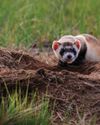
Does cloning create identical copies?
EMBRYOS ARE MADE OF STEM CELLS that divide to give rise to different types of cells, everything from skin to brain cells. Scientists once thought that reproductive cloning creating a genetically identical copy of an individual organism - would be impossible without using stem cells and that the path leading to mature 'differentiated' cells was irreversible. But clawed frogs proved them wrong...
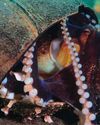
Tool-using animals
Our pick of 10 species that exhibit this special skill

Mission Blue
Sylvia Earle has dedicated her life to marine conservation; she tells BBC Wildlife why protecting the ocean is essential to all life on earth

RESHARK
The world's first shark rewilding initiative has seen zebra sharks released in the waters of Indonesia's Raja Ampat archipelago
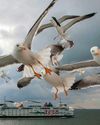
ON DECK
Ferries aren't just for transport, they're also perfect vessels for conservation
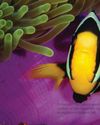
IT'S A COLOURFUL LIFE
Delve into the unique and complex biology of the clownfish, arguably the world's most famous fish

BAHAMAS BENEATH
A dive into the waters of this famous island nation with the creatures that call it home

"To save the reef, we need everybody involved"
Indigenous peoples may hold the key to protecting the Great Barrier Reef
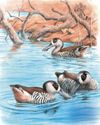
SPINNING AROUND
Going around in circles proves fruitful for this filter-feeder
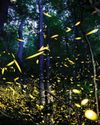
BLINDED BY THE LIGHT
On balmy evenings, amorous beetles put on a spellbinding show in North American forests